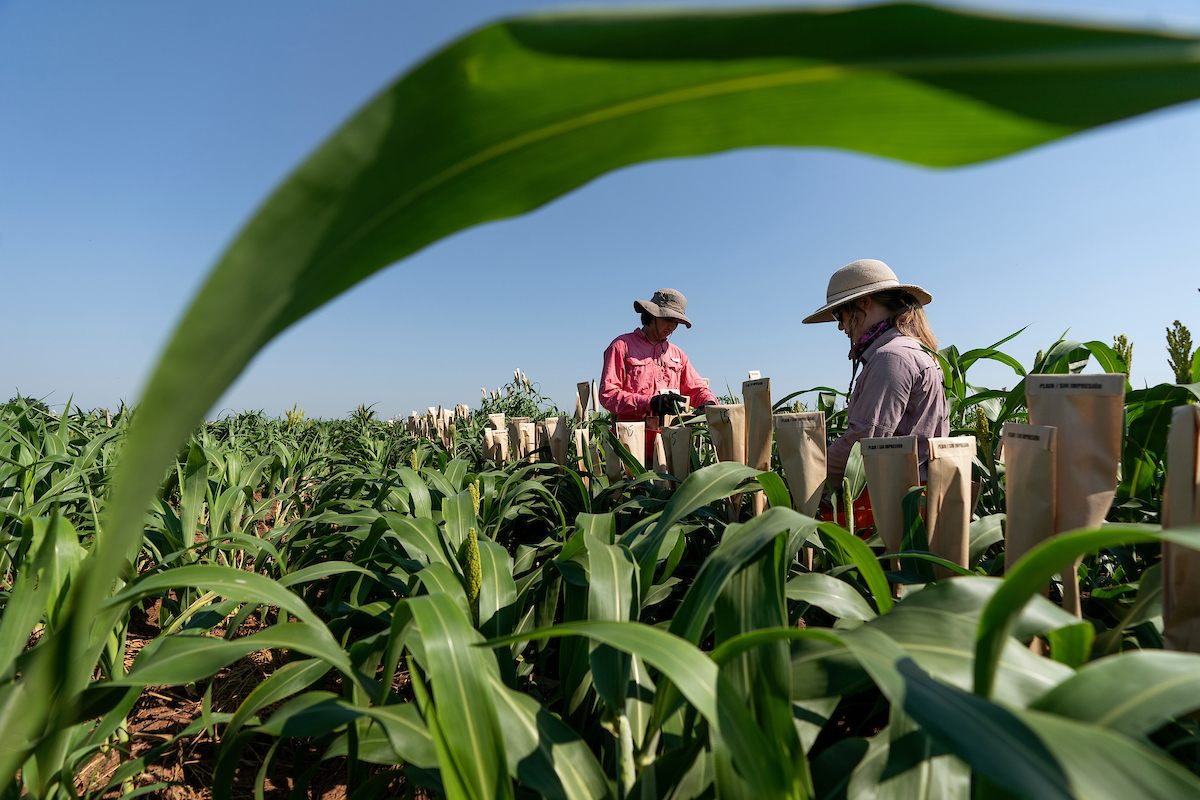
Soil and Crop Sciences Extension
Extension Program Areas
AgriLife Extension provides research-based education opportunities in a multitude of areas from farming and ranching, to estate planning. In Soil and Crop Sciences, Extension programs include subjects such as growing olives, soil testing, new technologies in weed management, and, of course, 4-H.
Bioenergy
The Bioenergy Extension program led by our department aims to bridge the gap between research advancements and practical applications in the field of renewable energy. Through workshops, outreach events, and educational resources, we equip communities and stakeholders with the knowledge and tools to implement sustainable bioenergy solutions in their local contexts.
Corn and Sorghum
The Corn Sorghum Extension program led by our department focuses on disseminating the latest research and best practices in corn and sorghum production. Through workshops, field demonstrations, and tailored resources, we aim to empower growers with the knowledge and strategies needed to optimize yields and enhance the economic viability of corn and sorghum farming in our region.
Cotton
The Cotton Sorghum Extension program spearheaded by our department is dedicated to providing growers with cutting-edge information and resources for successful cotton and sorghum production. Through workshops, field trials, and targeted outreach, we aim to bolster the sustainability and profitability of cotton and sorghum farming in our region, ensuring growers are equipped with the latest techniques and insights.
Crop Physiology
Our Crop Physiology Extension program is committed to delivering valuable insights and practical knowledge to farmers and agricultural professionals. Through workshops, seminars, and field demonstrations, we aim to enhance understanding of crop physiology principles, enabling stakeholders to make informed decisions for optimizing crop yields and quality.
Environmental Physics
Our Environmental Physics Extension program is dedicated to translating complex scientific principles into practical solutions for environmental challenges. Through workshops, seminars, and field studies, we empower communities and professionals with the tools and knowledge needed to address issues related to soil health, water conservation, and sustainable land management.
Farm Service
The Farm Service Extension program provides essential support and resources to local farmers, helping them navigate regulatory compliance, optimize operational practices, and adapt to evolving agricultural technologies. Through workshops, consultations, and tailored guidance, we work hand-in-hand with farmers to foster a resilient and thriving agricultural community.
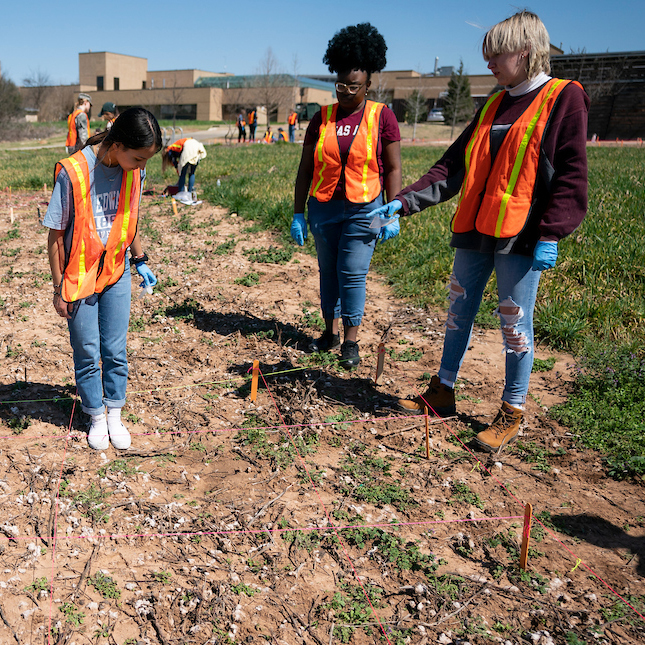
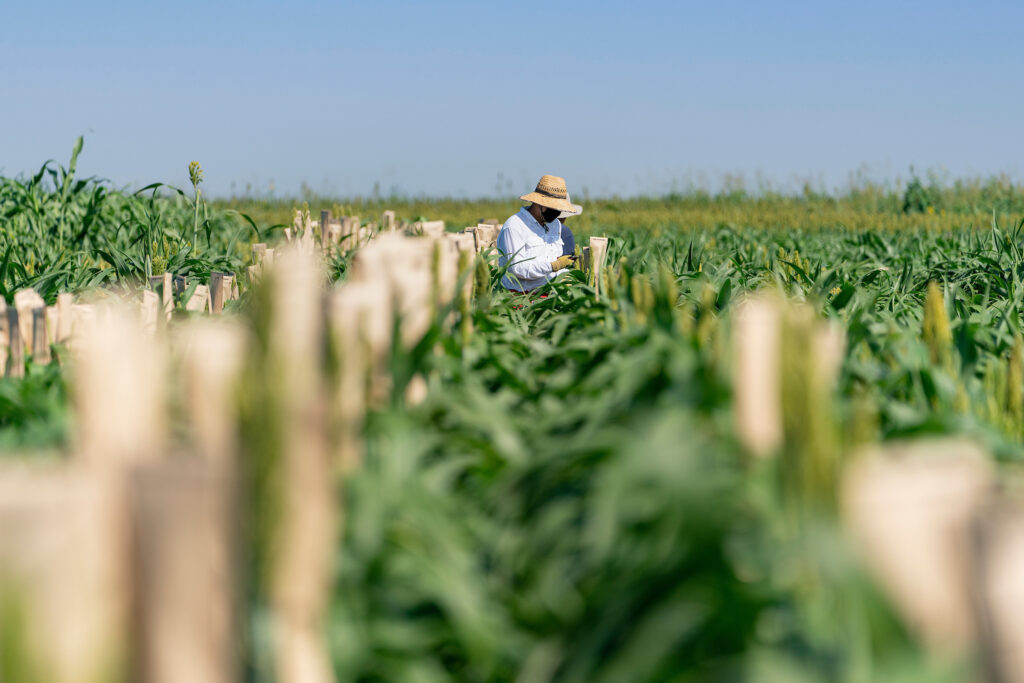
Forages
Our Forages Extension program is dedicated to equipping farmers and livestock producers with the knowledge and resources needed to optimize forage production for livestock nutrition. Through field demonstrations, workshops, and educational materials, we empower stakeholders to make informed decisions about forage species selection, management practices, and sustainable utilization, ultimately enhancing the overall productivity and profitability of livestock operations.
Landscape Process and Mineralogy
The Landscape Process and Mineralogy Extension program focuses on providing valuable insights into soil behavior and land management practices. Through workshops, soil analysis, and field assessments, we equip landowners and professionals with the knowledge to make informed decisions for sustainable land use and environmental conservation.
Peanut
Our Peanut Extension program is dedicated to providing growers with the latest research and best practices in peanut cultivation. Through workshops, field trials, and tailored resources, we aim to empower peanut growers with the knowledge and strategies needed to optimize yields and quality, ensuring a thriving peanut industry in our region.
Plant Breeding
Our Plant Breeding Extension program plays a crucial role in advancing agricultural practices by disseminating cutting-edge breeding techniques to farmers and industry professionals. Through workshops, field trials, and access to diverse germplasm resources, we empower stakeholders to make informed decisions for developing resilient and high-yielding crop varieties suited to regional growing conditions.
Plant Genomics and Biotechnology
The Plant Genomics and Biotechnology Extension program is at the forefront of disseminating groundbreaking genetic research and biotechnological advancements to the agricultural community. Through workshops, seminars, and hands-on training, we equip professionals and researchers with the tools and knowledge needed to harness genetic potential for crop improvement, ultimately enhancing agricultural productivity and sustainability.
Rice
Our Rice Extension program is dedicated to providing rice growers with the latest research and best practices for successful rice production. Through workshops, field trials, and tailored resources, we empower rice farmers with the knowledge and strategies needed to optimize yields and quality, ensuring a thriving rice industry in our region.
Soil Chemistry and Fertility
The Soil Chemistry and Fertility Extension program is committed to delivering practical insights and resources for optimal soil health and nutrient management. Through workshops, soil analysis, and personalized consultations, we empower farmers and landowners with the knowledge and strategies needed to enhance soil fertility, ultimately boosting crop yields and sustainability.
Soil Microbiology
Our Soil Microbiology Extension program is dedicated to unraveling the intricate microbial processes beneath the soil surface. Through workshops, field demonstrations, and hands-on training, we equip farmers, agronomists, and researchers with the knowledge to harness the power of soil microbes for improved nutrient cycling, disease suppression, and overall soil health, leading to more sustainable and productive agricultural systems.
Turfgrass
Our Turfgrass Extension program is committed to providing expertise and resources for the effective management of turf in various settings, from sports fields to residential lawns. Through workshops, seminars, and tailored guidance, we equip turfgrass professionals, landscapers, and homeowners with the knowledge and strategies needed to cultivate healthy, visually appealing, and resilient turf areas.
Water
Our Water Extension program focuses on disseminating critical knowledge and resources for sustainable water management in agriculture and beyond.
Weed Science
Weed science extension involves the dissemination of knowledge and research findings related to the management and control of weeds in agriculture and natural ecosystems. Extension specialists in weed science work closely with farmers and other stakeholders, providing practical solutions and sustainable strategies to mitigate the impact of weeds on crop production and environmental conservation.
Wheat and Small Grains
Our Wheat and Small Grains Extension program is dedicated to providing growers with the latest research and best practices in wheat and small grain production. Through workshops, field trials, and tailored resources, we aim to empower growers with the knowledge and strategies needed to optimize yields and quality, contributing to a thriving small grains industry in our region.
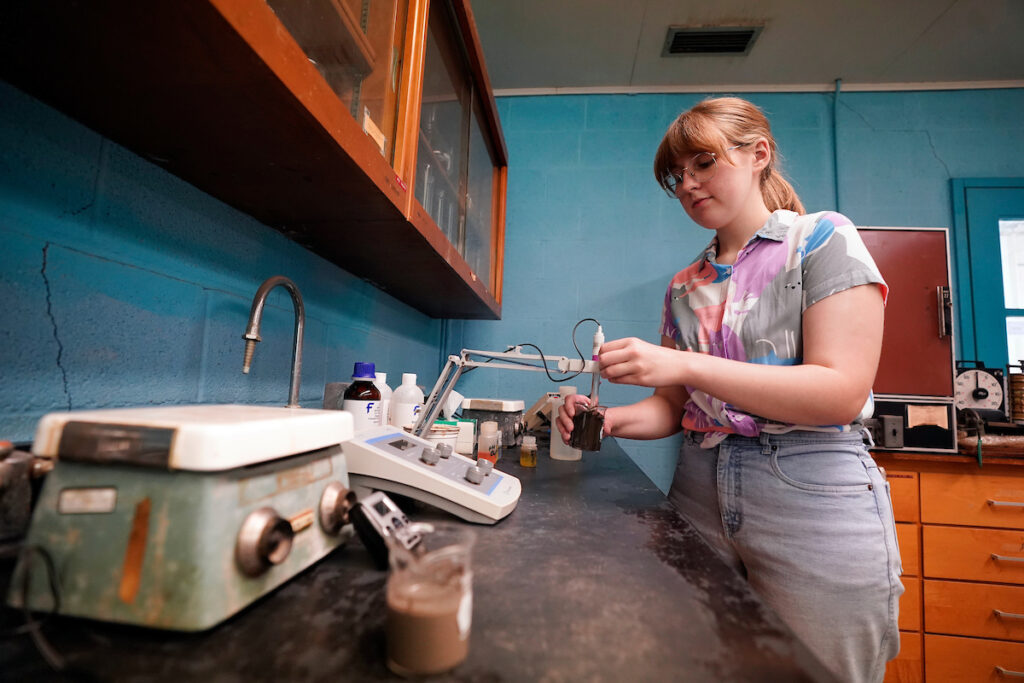
History of AgriLife Extension
The Smith-Lever Act of 1914 led to the official establishment of the Cooperative Extension Service at Texas Agricultural and Mechanical College, and the other land-grant colleges, but extension outreach had already been going on for over ten years.
In 1903, Dr. Seaman Knapp, a special agent with the USDA, built community farming plots on the Walter Porter Farm near Terrell Texas. Knapp’s intent was to demonstrate the USDA’s newly recommended methods of selection, fertilizing and cultivating crops. His program was such a success, thirty-three agents were the following year to help Texas farmers deal with their specific issues. These demonstrations set the foundation for Cooperative Extension.
On Sept. 8, 1907, Tom Marks of Jacksboro, Texas, formed an agriculture club that was the forerunner of Extension 4-H. A special county agent, Marks encountered resistance from farmers when he tried to convince them to adopt new, intensive farming methods. Instead of fighting the men, Marks turned to the youth of Jack County and formed the Jack County Boys’ Corn Club.
One hundred eleven boys were each given a gallon of new varieties of corn seeds. The boys cultivated their crops under the supervision of Marks, and the following year their corn was displayed at the first County Fair in Texas. Ninety-one boys and thirty older men entered exhibits in the fair. The success of the boys’ crops convinced some of the older farmers to use the new seed and employ the new farming techniques.
Soon Pig Clubs, Beef Clubs and, in 1912, a girls’ Tomato Club formed. Marks travelled across the state promoting the idea of agriculture clubs, until state and federal officials finally took notice and the Agriculture Extension Service was formed.
Today AgriLife Extension provides research-based education opportunities in a multitude of areas from farming and ranching, to estate planning. In Soil and Crop Sciences, Extension programs include subjects such as growing olives, soil testing, new technologies in weed management, and, of course, 4-H.
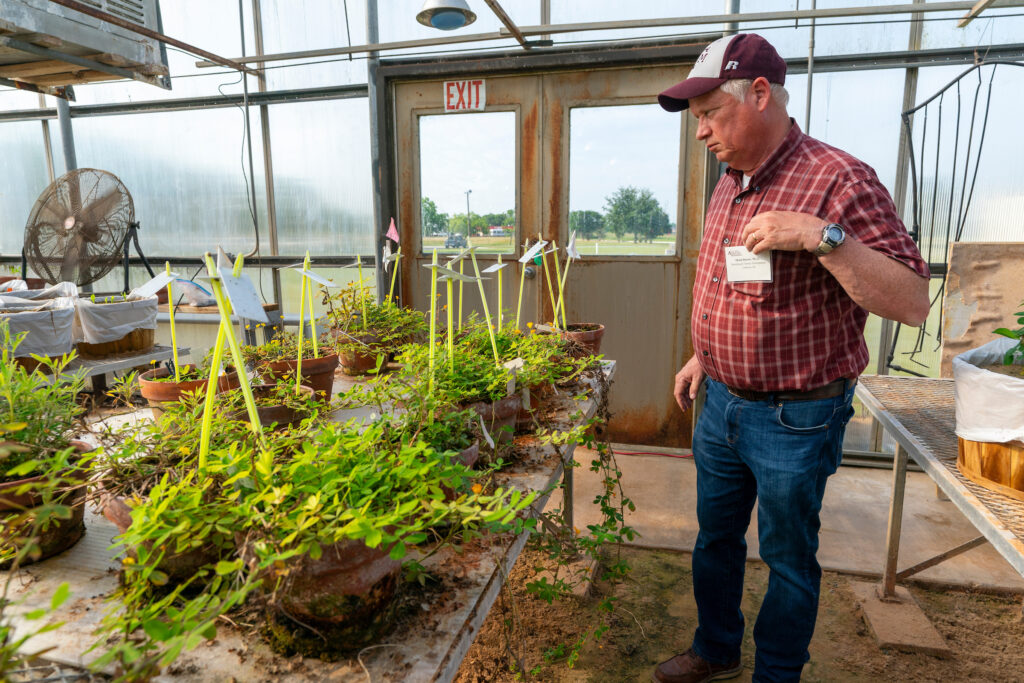
Find an Extension Expert
Our Extension faculty are at the forefront of helping landowner communities understand the latest science-based natural resource management techniques and practices that will impact them directly.
Outreach Efforts and Flagship Programs
In the realm of Soil and Crop Science, our department is committed to impactful outreach efforts and the establishment of flagship programs that contribute significantly to the broader community. Through strategic engagement initiatives, we strive to bridge the gap between academia and the wider public, fostering awareness and understanding of critical issues in soil and crop sciences.
Our flagship programs serve as beacons of innovation and excellence, exemplifying our dedication to advancing sustainable agricultural practices, environmental stewardship, and the dissemination of cutting-edge research. These endeavors underscore our mission to not only push the boundaries of scientific knowledge within our field but also to share its benefits with the world at large. Notably, a majority of participants in these initiatives are associated with AgriLife Research, TAMU graduate students, and NRCS employees, creating a dynamic and collaborative network for advancing our shared goals.
Soil Survey and Land Resource Workshop
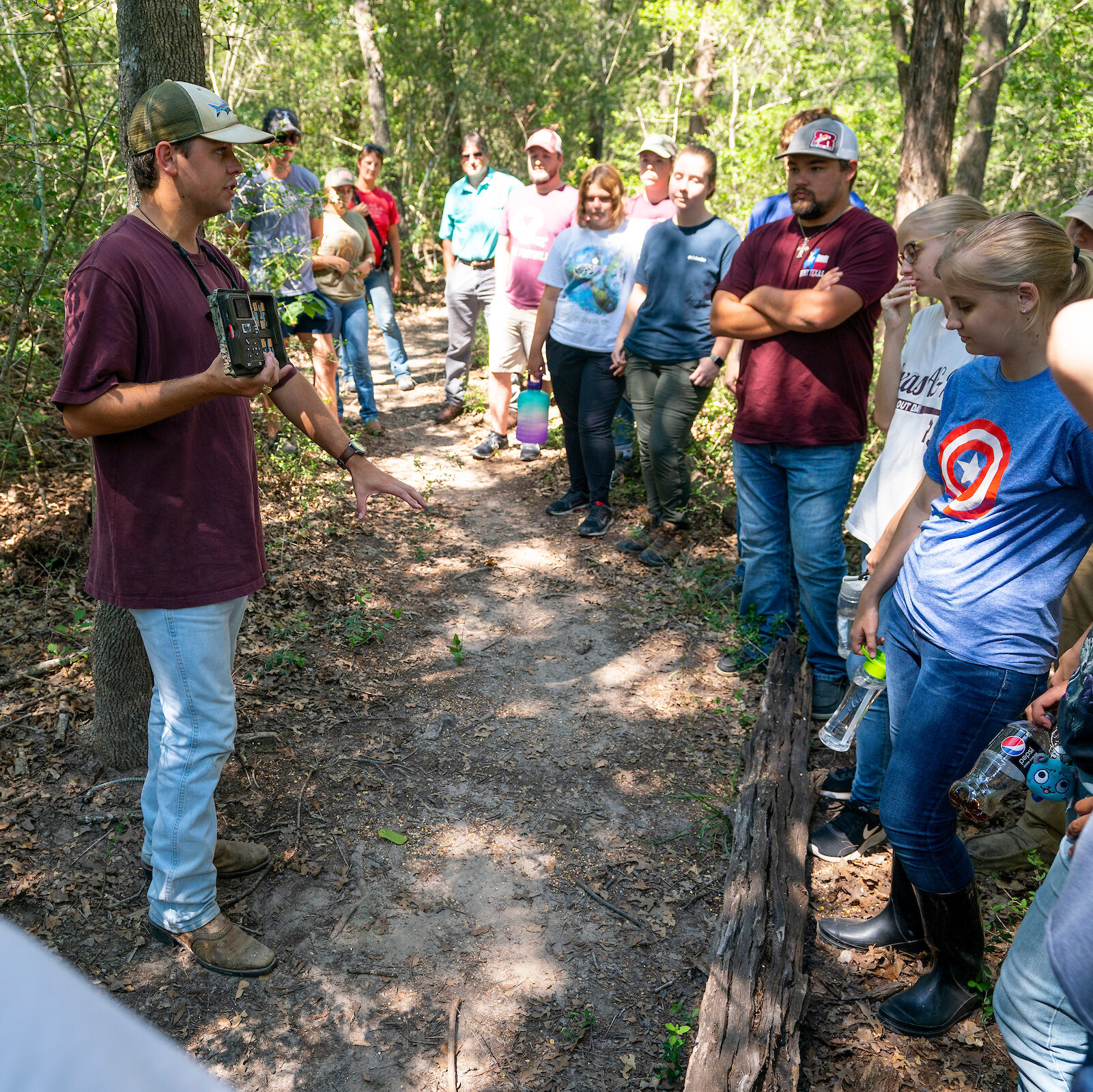
Surface Mine Reclamation Workshop
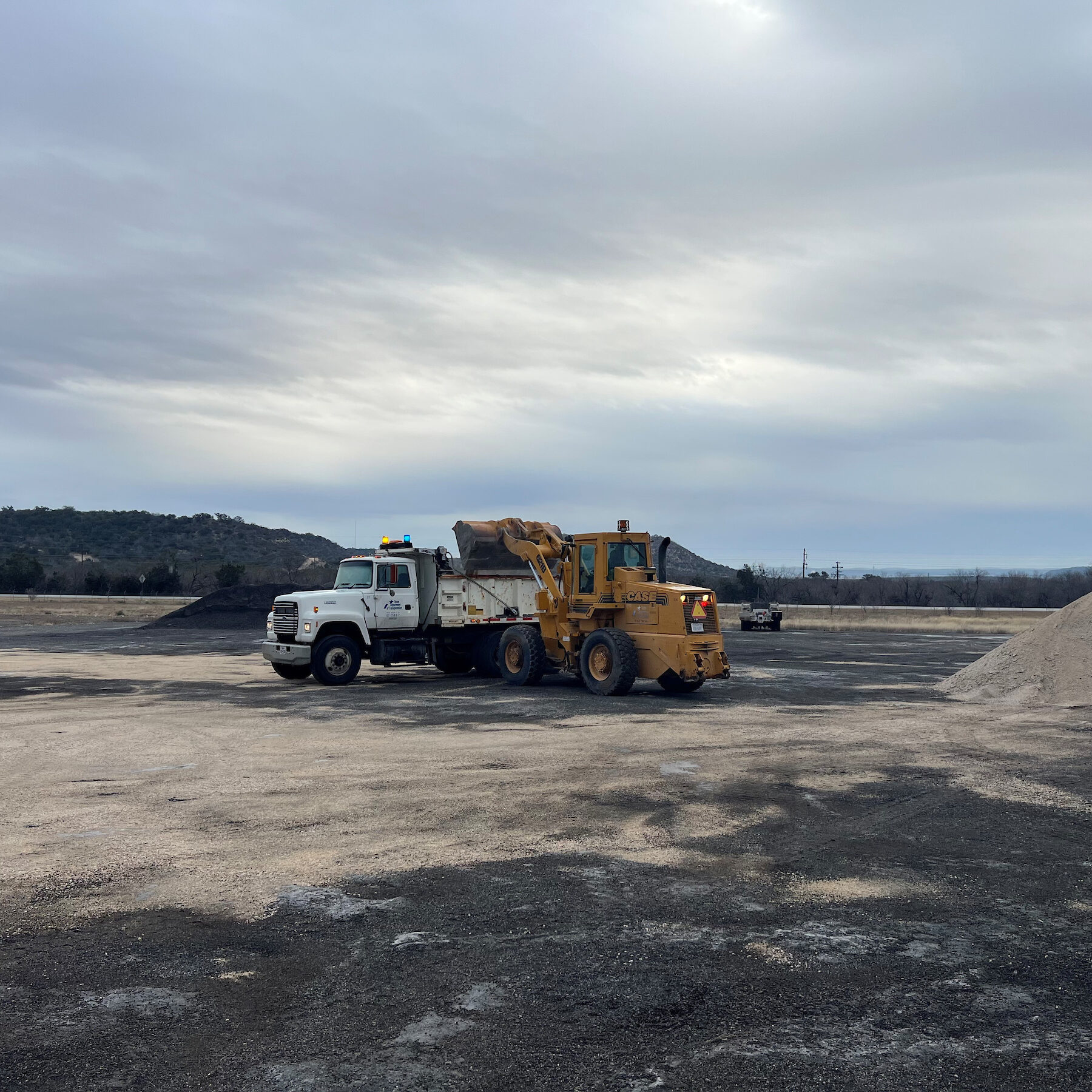
Lone Star Healthy Streams Program
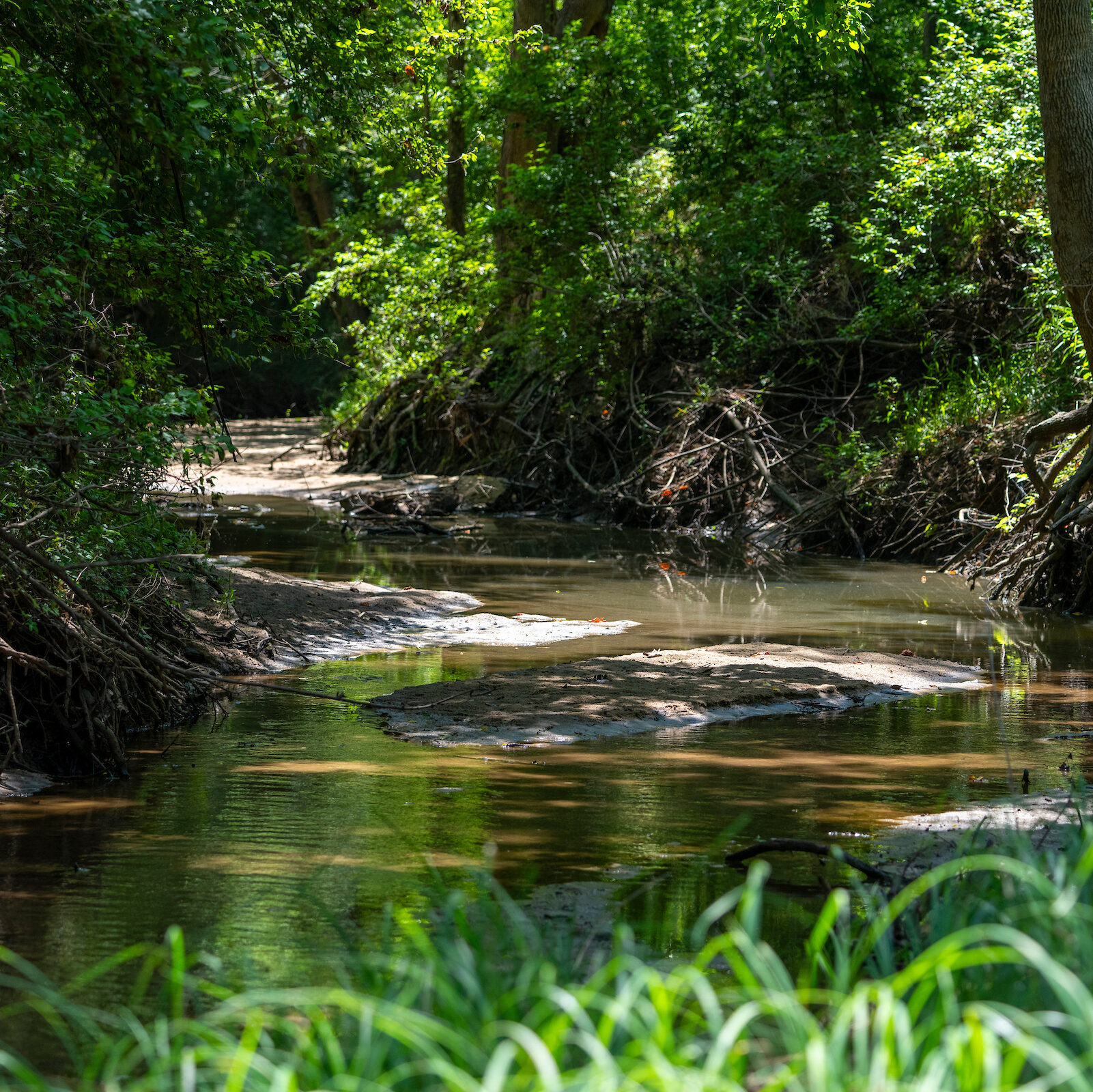
Extension News
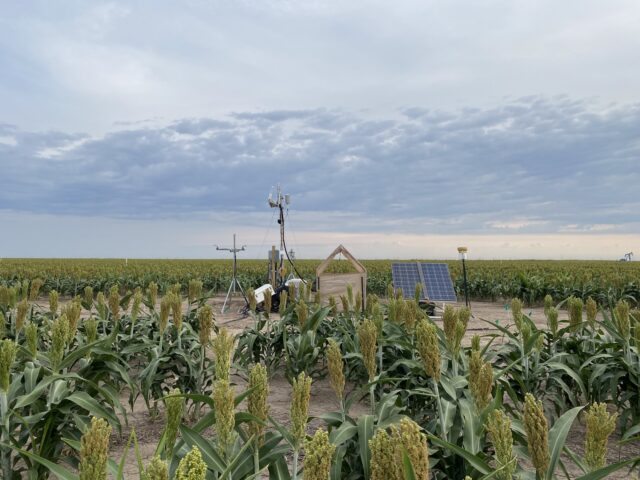
AgriLife Research kicks off climate-smart project
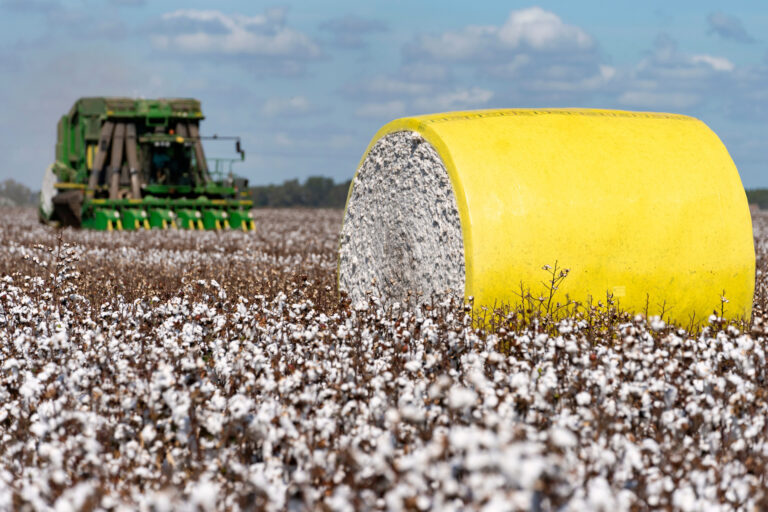
Former student cultivates key role in Texas cotton production
Browse our Resources on AgriLife Learn
We develop top-tier educational content, materials, and multimedia including online courses and publications to help our stakeholders make informed decisions.